Natural Mood Stabilizers
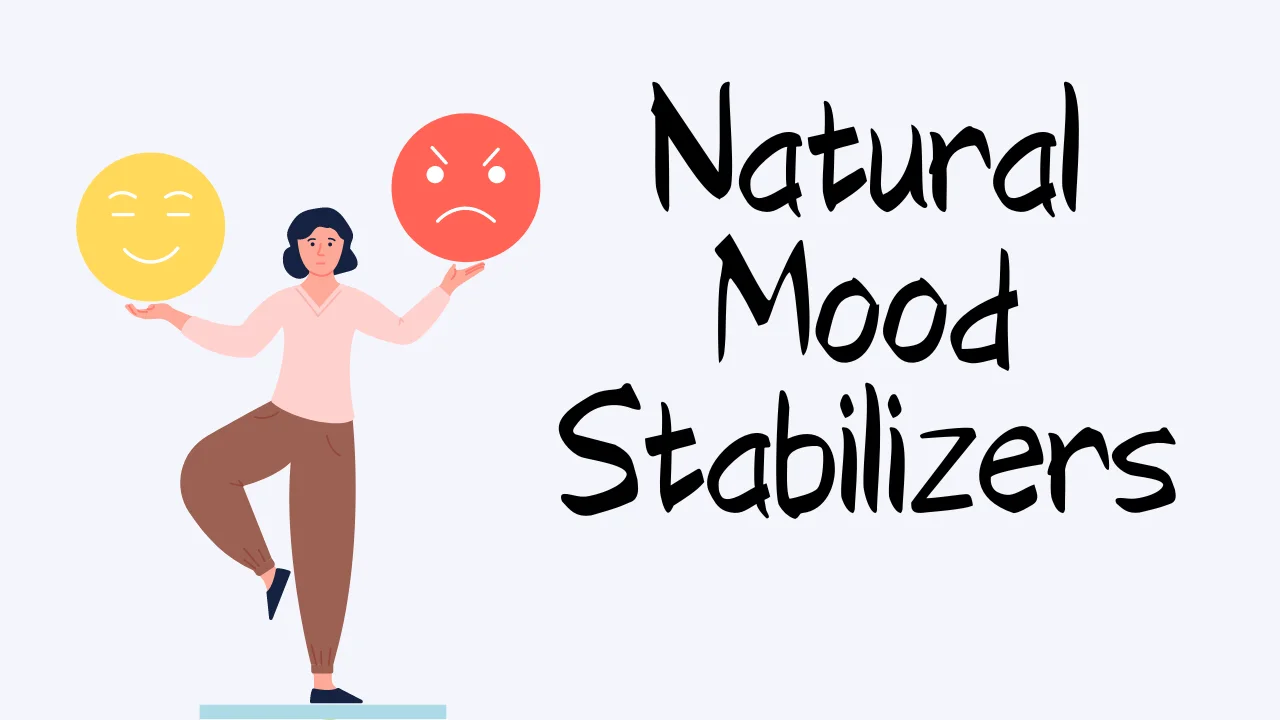
Natural mood stabilizers have been gaining attention for their potential to manage mood fluctuations without the side effects commonly associated with pharmaceutical options. These alternatives derive from a variety of sources, including certain nutrients, probiotics, and herbal remedies. They work by influencing the body's natural processes to foster a balanced mental state.
The appeal of these substances lies in their gentle approach to mood regulation, and the growing body of factual data supporting their efficacy is adding to their popularity. This article will delve into the different categories of natural mood stabilizers, highlighting how they can be integrated into one's lifestyle to contribute to emotional well-being.
Understanding Natural Mood Stabilizers
Natural mood stabilizers comprise substances derived from nature that can help maintain emotional equilibrium. Unlike synthetic medications, these stabilizers typically exhibit fewer side effects and function by optimizing the body's intrinsic biochemistry.
They operate on multiple levels, from influencing neurotransmitter activities to modulating stress responses. Factual data is increasingly validating their effectiveness, making them a viable option for those seeking a more organic approach to mood management. Their acceptance and use are growing as understanding deepens regarding their potential benefits and mechanisms within the complex human physiological landscape.
Benefits and Importance of Natural Mood Stabilizers

Natural mood stabilizers offer a valuable alternative to conventional treatments, with advantages that resonate with individuals seeking non-pharmaceutical solutions. They tend to be associated with less severe side effects and integrate seamlessly into the body's natural processes. The importance of these options cannot be overstated, for they empower people to take charge of their mental wellness through accessible, holistic means.
With factual data backing their efficacy, these stabilizers not only enhance emotional steadiness but potentially improve overall health. The move towards natural mood regulation reflects an evolving perspective on health care, prioritizing gentle yet effective interventions that align with the body's inherent rhythms.
Omega-3 Fatty Acids
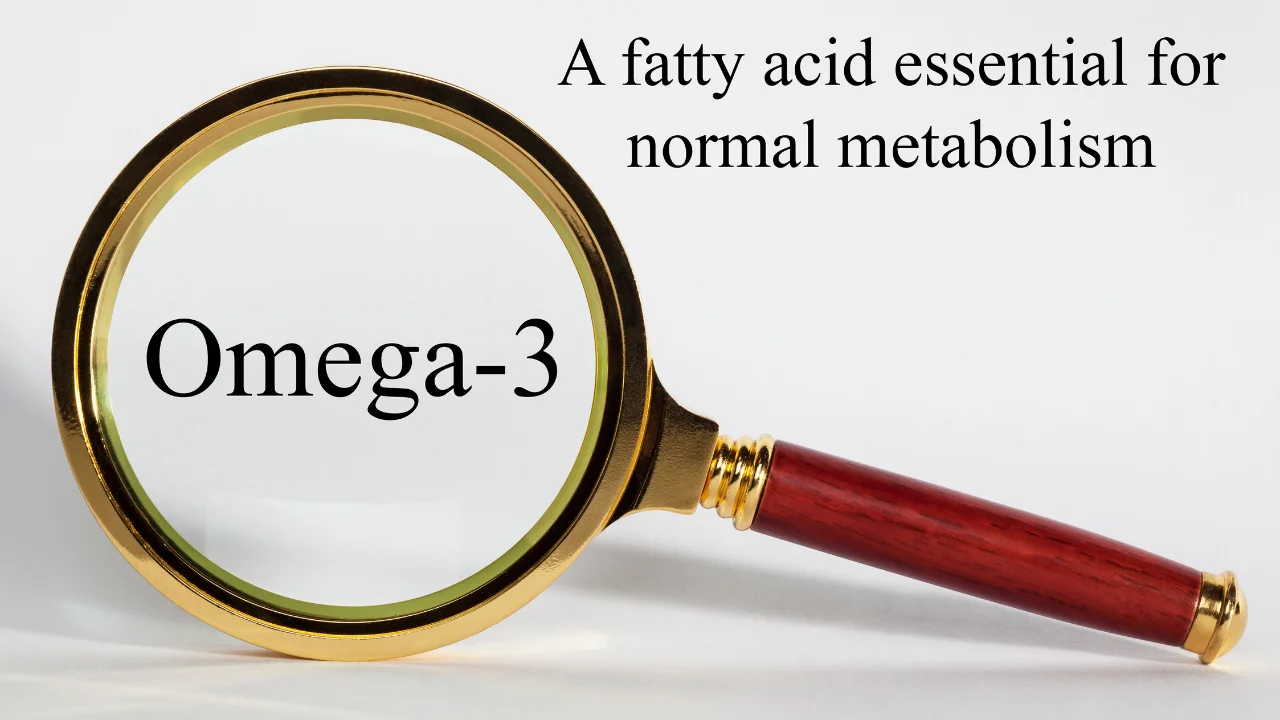
Omega-3 fatty acids play a crucial role in maintaining mental health. They're essential fats the body can't make on its own, necessitating their intake through diet or supplements. The Role of Omega-3s in Mood Stability is supported by factual data which suggest they can help manage mood swings and alleviate depression symptoms. Rich Sources of Omega-3 Fatty Acids include:
| Food Source: | Omega-3 Content |
| Flaxseeds: | High in ALA |
| Walnuts: | Rich in ALA |
| Fish Oil: | Abundant in EPA & DHA |
| Chia Seeds: | Contains ALA |
| Salmon: | High in EPA & DHA |
Incorporating these foods into the diet can foster emotional balance and contribute to an overall sense of well-being.
The Role of Omega-3s in Mood Stability
Omega-3 fatty acids have gained recognition for their importance in brain health and emotional regulation. These polyunsaturated fats, particularly eicosapentaenoic acid (EPA) and docosahexaenoic acid (DHA), have been linked to mood stability through various mechanisms. Factual data from clinical studies suggest that they can influence neurotransmitter pathways, reduce inflammation, and promote neuroplasticity. Ample evidence points to a correlation between increased omega-3 intake and reduced risk of mood swings and depressive episodes.
For individuals seeking natural ways to maintain mental wellness, omega-3 fatty acids offer a promising avenue to enhance mood and cognitive function, underscoring their crucial role in a balanced diet and overall mental health strategy.
Sources of Omega-3 Fatty Acids
Omega-3 fatty acids are vital for emotional wellbeing, with EPA and DHA being the most beneficial types. Natural sources of these nutrients are predominantly found in fatty fish, such as salmon, mackerel, and sardines.
For vegetarians or those who prefer plant-based options, flaxseeds, chia seeds, and walnuts offer a considerable amount of alpha-linolenic acid (ALA), which the body can partially convert to EPA and DHA. Moreover, algae-based supplements provide an alternative source of DHA suitable for vegans. To ensure adequate intake, individuals should incorporate a variety of these foods into their diets, as factual data supports the positive impact of omega-3s on mood regulation.
Magnesium

Magnesium has emerged as a pivotal mineral for mental health, operating as a natural tranquilizer to soothe the nervous system. It is involved in numerous biochemical reactions that ensure proper brain function and has been linked to mood regulation. Studies suggest that low magnesium levels may be associated with increased anxiety and depression symptoms. Thus, maintaining an adequate magnesium intake is crucial for emotional equilibrium.
| Foods Rich in Magnesium | Approximate Magnesium Content |
| Almonds, dry roasted (1 oz) | 80 mg |
| Spinach, boiled (1/2 cup) | 78 mg |
| Cashews, dry roasted (1 oz) | 74 mg |
| Peanuts, oil roasted (1/4 cup) | 63 mg |
| Black beans, cooked (1/2 cup) | 60 mg |
Consistent factual data underscores the importance of integrating magnesium-rich foods into one's diet to foster mental well-being.
Magnesium as a Natural Mood Stabilizer
Magnesium stands out for its calming effect on the nervous system, presenting itself as a significant mineral for mental health. It works as a natural tranquilizer, easing anxiety and aiding in mood regulation. Factual data demonstrates that a deficiency in magnesium might be linked to heightened symptoms of depression and increased anxiety levels. Maintaining optimal magnesium intake is thus instrumental for promoting a stable and positive mood.
By leveraging its role in various enzymatic reactions essential for brain function, magnesium assists as a cornerstone for achieving mental wellness and emotional balance. Integrating this mineral into one's diet can be a straightforward and effective strategy to help stabilize mood naturally.
How to Incorporate Magnesium into Your Diet
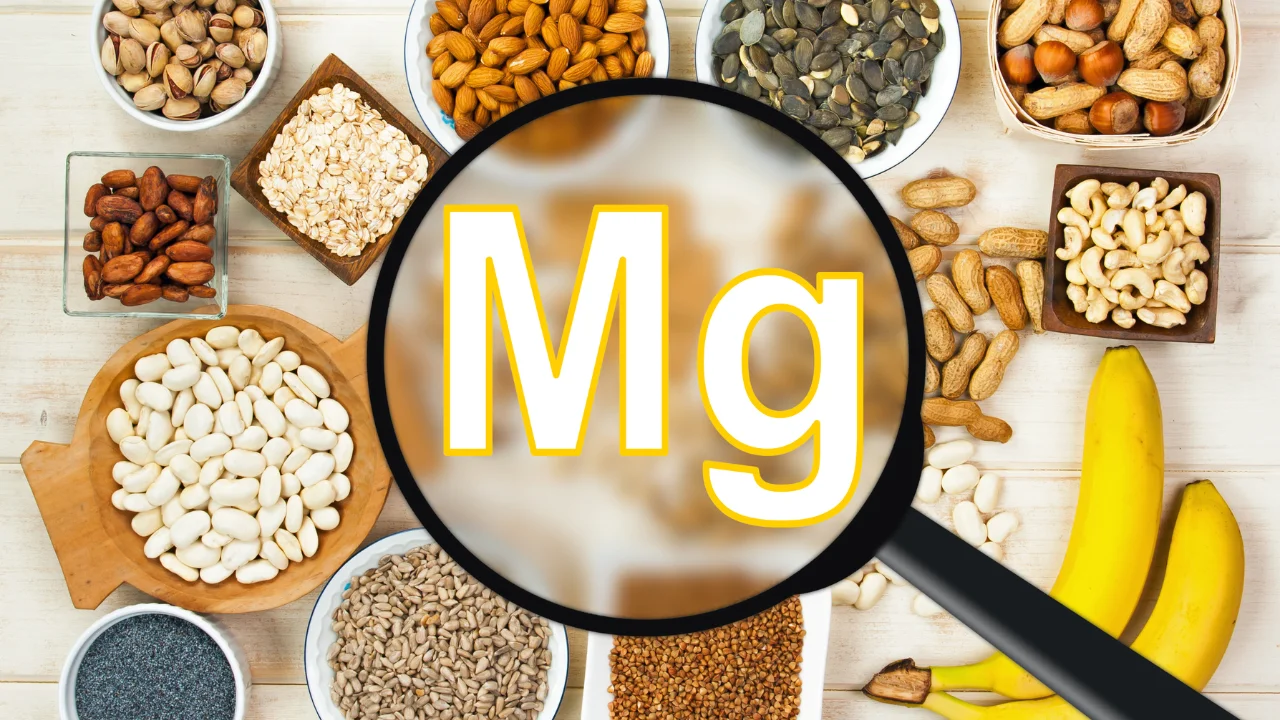
To ensure adequate magnesium intake, incorporating magnesium-rich foods into daily meals is key. Leafy greens such as spinach and kale are excellent sources, along with nuts, seeds, and legumes. Whole grains like brown rice and quinoa also contribute significant amounts of magnesium. For those with a sweet tooth, dark chocolate offers a delightful option.
Moreover, supplemental forms are available, including magnesium citrate, oxide, and chloride, allowing for tailored solutions to individual needs. Regular consumption of these foods and supplements can help maintain magnesium levels, potentially improving overall mood stability. It's advisable to consult with a healthcare provider before starting any supplementation to determine appropriate dosages and avoid interference with other medications.
Probiotics

Probiotics, often referred to as "good bacteria," play a crucial role in maintaining gut health, which surprisingly influences our mental well-being through the gut-brain connection. These beneficial microorganisms contribute to a balanced gut microbiome, essential for the production of neurotransmitters such as serotonin.
Studies suggest a link between probiotic intake and improved mood, indicating their potential as natural mood stabilizers. To harness probiotics' benefits for mental health, one can consume fermented foods like yogurt, kefir, sauerkraut, and kombucha, or consider high-quality probiotic supplements. Regular incorporation of these sources can help promote a healthy gut environment, fostering emotional balance and resilience against stress. However, consulting with a healthcare provider is advised to determine the right probiotic strains and suitable dosages.
The Gut-Brain Connection

The intricate relationship between the gut and the brain, often termed the gut-brain axis, is vital in understanding the impact of gut health on mood and mental well-being. This bidirectional communication pathway allows gut bacteria to send signals to the brain through various mechanisms, including the nervous system, immune responses, and hormone production.
Scientific research has revealed that an imbalance in the gut microbiota can influence brain function, potentially leading to mood fluctuations and stress-related symptoms. Maintaining a healthy gut environment, therefore, is not only crucial for digestive health, but also for supporting emotional stability and cognitive functions. Probiotics are increasingly recognized for their role in fostering this connection and promoting mental health.
Probiotics and Mental Health
Probiotics not only aid in digestive health but also show promise in enhancing mental well-being. The gut-brain axis serves as a key pathway wherein probiotics can have a direct impact on mood regulation.

Factual data suggests that specific strains of probiotics may help produce neurotransmitters like serotonin, contributing to a positive mood balance. Clinical studies indicate that probiotics can be effective in reducing symptoms of depression and anxiety, highlighting their potential role as a natural mood stabilizer. For those seeking to improve their mental health holistically, incorporating probiotic-rich foods or supplements into one's diet may serve as a beneficial strategy. However, it's advisable to consult health professionals before starting any new supplement regimen.
Herbal Supplements
Harnessing the power of nature, herbal supplements have become a beacon of hope for those battling mood swings. St. John's Wort, for instance, stands out for its antidepressant properties. Historical and contemporary factual data underscore its efficacy, especially in mild to moderate depression. However, caution is warranted due to its interaction with various medications.
Other botanicals like Valerian Root and Lavender offer tranquil effects, promoting relaxation and combatting anxiety. Leveraging such herbal remedies can be a viable complement to traditional treatments, yet it is crucial for individuals to consult with healthcare experts prior to usage to ensure compatibility and efficacy for their specific mental health needs.
St. John's Wort: Benefits and Cautions

Harnessing the antidepressant power of nature, St. John's Wort has attracted attention for its mood-stabilizing properties. According to factual data, it can be beneficial in managing mild to moderate depression. Its active compounds, such as hypericin and hyperforin, are thought to enhance neurotransmitter activity in the brain.
Despite its potential benefits, St. John's Wort is not without risks. It can interact adversely with various prescription medications, including antidepressants, birth control pills, and blood thinners, potentially diminishing their efficacy. Due to these significant interactions, it is imperative that individuals consult health professionals before incorporating St. John's Wort into their regimen to ensure safety and optimal mental health management.
Other Herbal Remedies for Mood Regulation
Beyond St. John's Wort, there are various herbal remedies known for their potential in stabilizing mood. Ashwagandha has been long praised for its stress-reducing effects, attributed to its adaptogenic properties. Valerian root is another herb that may alleviate anxiety and improve sleep quality, essential for mood regulation.
Lavender, often used in aromatherapy, is celebrated for its calming scent that can reduce stress. Rhodiola rosea, sourced from arctic regions, is another adaptogen studied for its fatigue-combatting and mood-enhancing qualities. Saffron extracts have shown promise in supporting emotional health. However, it is critical to review factual data before starting any herbal treatment, as potency and interactions vary. Consulting with healthcare professionals ensures these natural remedies complement one's overall wellness strategy.
Lifestyle Adjustments

Incorporating certain lifestyle changes can significantly bolster mood stabilization efforts. Regular physical exercise is a potent mood enhancer, as it triggers the release of endorphins, often touted as the body's natural feel-good chemicals.
Engaging in cardiovascular activities, be it brisk walking, cycling, or swimming, can be particularly beneficial. Equally important are mindfulness and stress reduction techniques such as meditation, deep breathing exercises, and yoga. These practices cultivate mental resilience and can lead to improved emotional regulation.
By prioritizing both physical activity and mental wellbeing through these lifestyle adjustments, individuals can harness the synergistic benefits that aid in mood stabilization. This holistic approach, supported by factual data, underscores the significance of a balanced routine for maintaining mental health.
Exercise and Mood Stabilization
Regular physical activity is a cornerstone for maintaining mood stability. Engaging in exercise leads to the release of endorphins, commonly known as the body's natural antidepressants. Scientific research supports the claim that these endorphins enhance one's sense of well-being and provide mood-lifting benefits.

Cardiovascular exercises such as jogging, swimming, or even a brisk walk have proven effective for mood stabilization. Moreover, the incorporation of consistent aerobic workouts or strength training sessions into one's routine can significantly contribute to better mood regulation.
It is important to note that the positive effects extend beyond the immediate post-exercise period, influencing long-term mental health. Hence, incorporating regular physical exercise is critical for those seeking to manage their emotions naturally and healthily.
Mindfulness and Stress Reduction Techniques
Mindfulness practices and stress-reduction techniques have emerged as powerful tools for improving emotional well-being. These approaches allow individuals to remain present and fully engaged in the current moment. By fostering an increased awareness of thoughts and feelings, mindfulness helps to reduce anxiety and prevent emotional spirals. Techniques such as meditation, deep-breathing exercises, and yoga are not only accessible but also backed by factual data confirming their benefits for mental health.
Such activities can be particularly effective when coupled with other natural mood stabilizers, creating a holistic strategy for mood regulation. The integration of mindfulness into daily routines can significantly enhance mood stability, offering a natural, sustainable method for managing stress and emotions.
Conclusion
In summary, the integration of natural mood stabilizers into one's lifestyle can lead to significant improvements in emotional health. Factual data supports the efficacy of elements like Omega-3 fatty acids, magnesium, and probiotics, as well as the therapeutic effects of herbal supplements and regular exercise. Mindfulness and stress reduction techniques further empower individuals to navigate life's complexities with grace.
By cultivating these practices, people can harness the power of nature's remedies and lifestyle adjustments to maintain balance. However, it's essential to approach these interventions with informed caution and often in conjunction with professional advice, ensuring that they complement each individual's unique needs and circumstances effectively.
Integrating Natural Mood Stabilizers into Daily Life
Embracing natural mood stabilizers demands a conscious approach to daily habits and nutrition. Individuals seeking emotional equilibrium can incorporate Omega-3 rich foods like fish and flaxseeds, ensuring the intake of these essential fatty acids.
Adding magnesium through leafy greens, nuts, and whole grains can further enhance mood stability. For gut health, fermented foods like yogurt and kefir provide probiotics that can influence positive mental health. Engaging in regular exercise and mindfulness practices not only augments physical well-being but also fortifies mental resilience. When employed thoughtfully, these natural interventions can forge a foundation for sustained emotional balance, meshing seamlessly into the fabric of daily life.
Final Thoughts and Precautions
While natural mood stabilizers can play a significant role in maintaining emotional balance, it is essential to approach their use with mindfulness. Consultation with healthcare professionals is crucial, especially for those on medication or with pre-existing conditions, to avoid adverse interactions.
Factual data and personal health history should be considered when integrating such methods into one's lifestyle. Adopting a holistic perspective, balancing dietary adjustments with physical activity and mindfulness practices, may yield the best outcomes.
However, it should be understood that these natural solutions are complements to traditional treatments, not replacements. Individuals are encouraged to pursue a tailored plan that resonates with their unique needs, fostering a sustainable path to mental well-being.
Take Charge of
Your Brain Health Today!
Shop Now!
Similar Articles:
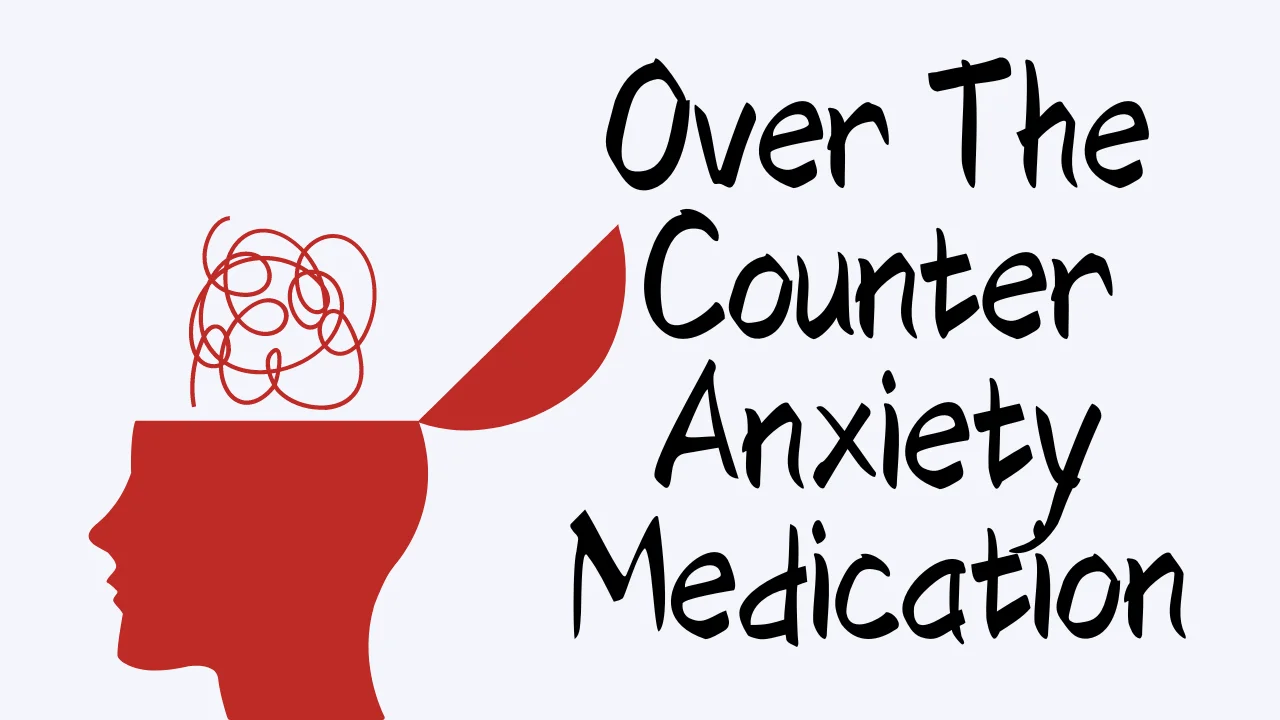
Over The Counter Anxiety Medication
Anxiety is a common mental health issue that can have a significant impact on daily life...
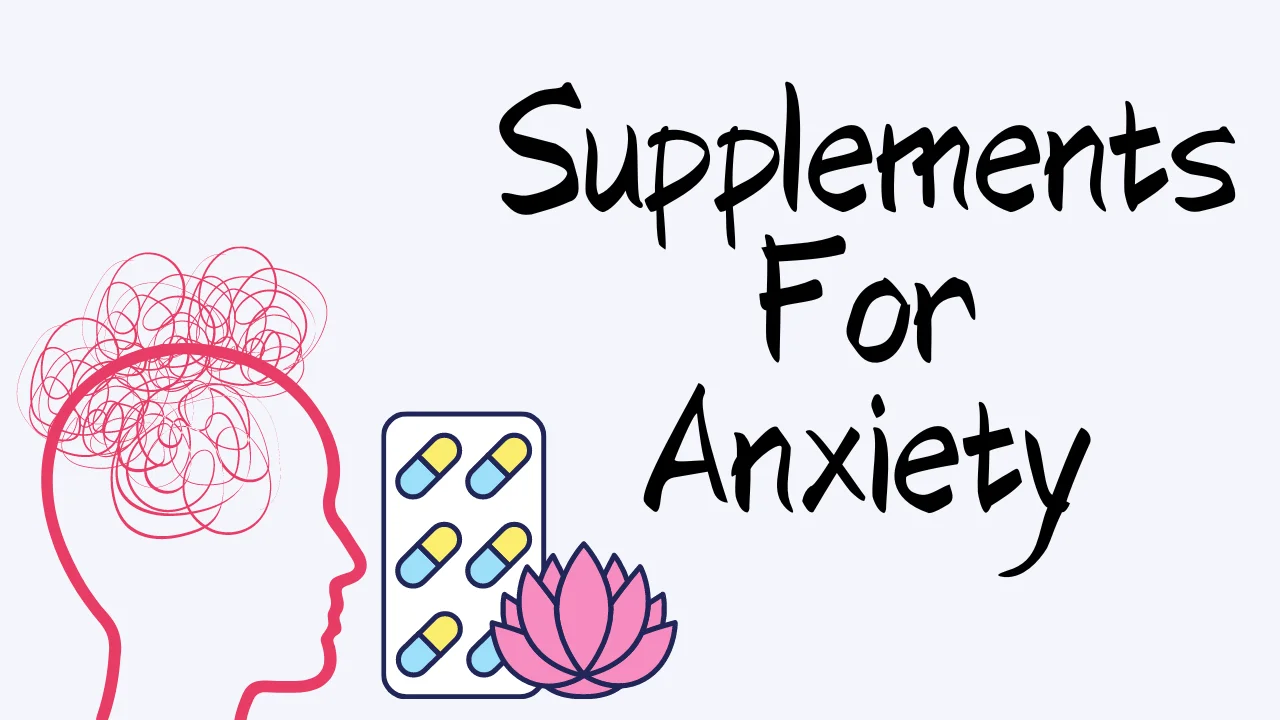
Supplements For Anxiety
As we delve into natural remedies for anxiety, it's crucial to consider the holistic approach that...

ADD in Adults
In the realm of neurodevelopmental conditions, Attention Deficit Disorder (ADD) has long been overshadowed by...